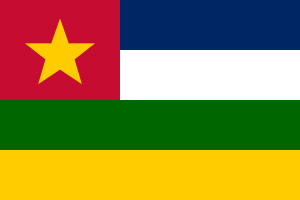Difference between revisions of "Language/Pulaar/Grammar/Plurals"
m (Quick edit) |
m (Quick edit) |
||
| Line 33: | Line 33: | ||
== Conclusion == | == Conclusion == | ||
Now you know how to form plurals in Pulaar! To improve your [[Language/Pulaar|Pulaar]] [[Language/Pulaar/Grammar|Grammar]], you can also use the [https://polyglotclub.com Polyglot Club] website. [https://polyglotclub.com/find-friends.php?search=send&d=0&f=36&offre1=5686 Find native speakers] and ask them any [https://polyglotclub.com/language/pulaar/question questions]!<hr>If you have any questions, please ask them in the comments section below.<br>Feel free to edit this wiki page if you think it can be improved. 😎 | Now you know how to form plurals in Pulaar! To improve your [[Language/Pulaar|Pulaar]] [[Language/Pulaar/Grammar|Grammar]], you can also use the [https://polyglotclub.com Polyglot Club] website. [https://polyglotclub.com/find-friends.php?search=send&d=0&f=36&offre1=5686 Find native speakers] and ask them any [https://polyglotclub.com/language/pulaar/question questions]!<hr>If you have any questions, please ask them in the comments section below.<br>Feel free to edit this wiki page if you think it can be improved. 😎 | ||
==Related Lessons== | |||
* [[Language/Pulaar/Grammar/Questions|Questions]] | |||
* [[Language/Pulaar/Grammar/Pronouns|Pronouns]] | |||
* [[Language/Pulaar/Grammar/Conditional-Mood|Conditional Mood]] | |||
* [[Language/Pulaar/Grammar/Future-Tense|Future Tense]] | |||
* [[Language/Pulaar/Grammar/Adjectives|Adjectives]] | |||
* [[Language/Pulaar/Grammar/Negation|Negation]] | |||
{{Pulaar-Page-Bottom}} | {{Pulaar-Page-Bottom}} | ||
Revision as of 22:52, 25 February 2023
Hi Pulaar learners!😊
Learning Pulaar Grammar can be a challenging task, but it is also an incredibly rewarding one. With the right approach and dedication, you can master the language in no time. In this lesson, we will focus on plurals in Pulaar.
What are Plurals?
Plurals are words that refer to more than one person, place, or thing. In Pulaar, plurals are formed by adding certain suffixes to the end of the word. For example, the word for "book" is "boowal", and the plural form is "boowalɓe".
Plural Suffixes
The most common plural suffixes in Pulaar are "-ɓe", "-ee", and "-e".
- "-ɓe" is used for nouns ending in a consonant. For example, the word for "house" is "gite", and the plural form is "giteɓe".
- "-ee" is used for nouns ending in a vowel. For example, the word for "man" is "ndimmo", and the plural form is "ndimmooɓe".
- "-e" is used for nouns ending in a long vowel. For example, the word for "woman" is "ndamma", and the plural form is "ndammaaɓe".
Irregular Plurals
Some nouns have irregular plural forms. For example, the word for "child" is "yaram", and the plural form is "yarme".
Practice
To practice forming plurals in Pulaar, try translating the following sentences:
- I saw two houses.
- We heard three women.
- They found four books.
Answers:
- Ndeeñi giteɓe.
- Ngam heɓi ndammaaɓe.
- Yiyi boowalɓe.
Conclusion
Now you know how to form plurals in Pulaar! To improve your Pulaar Grammar, you can also use the Polyglot Club website. Find native speakers and ask them any questions!
If you have any questions, please ask them in the comments section below.
Feel free to edit this wiki page if you think it can be improved. 😎
